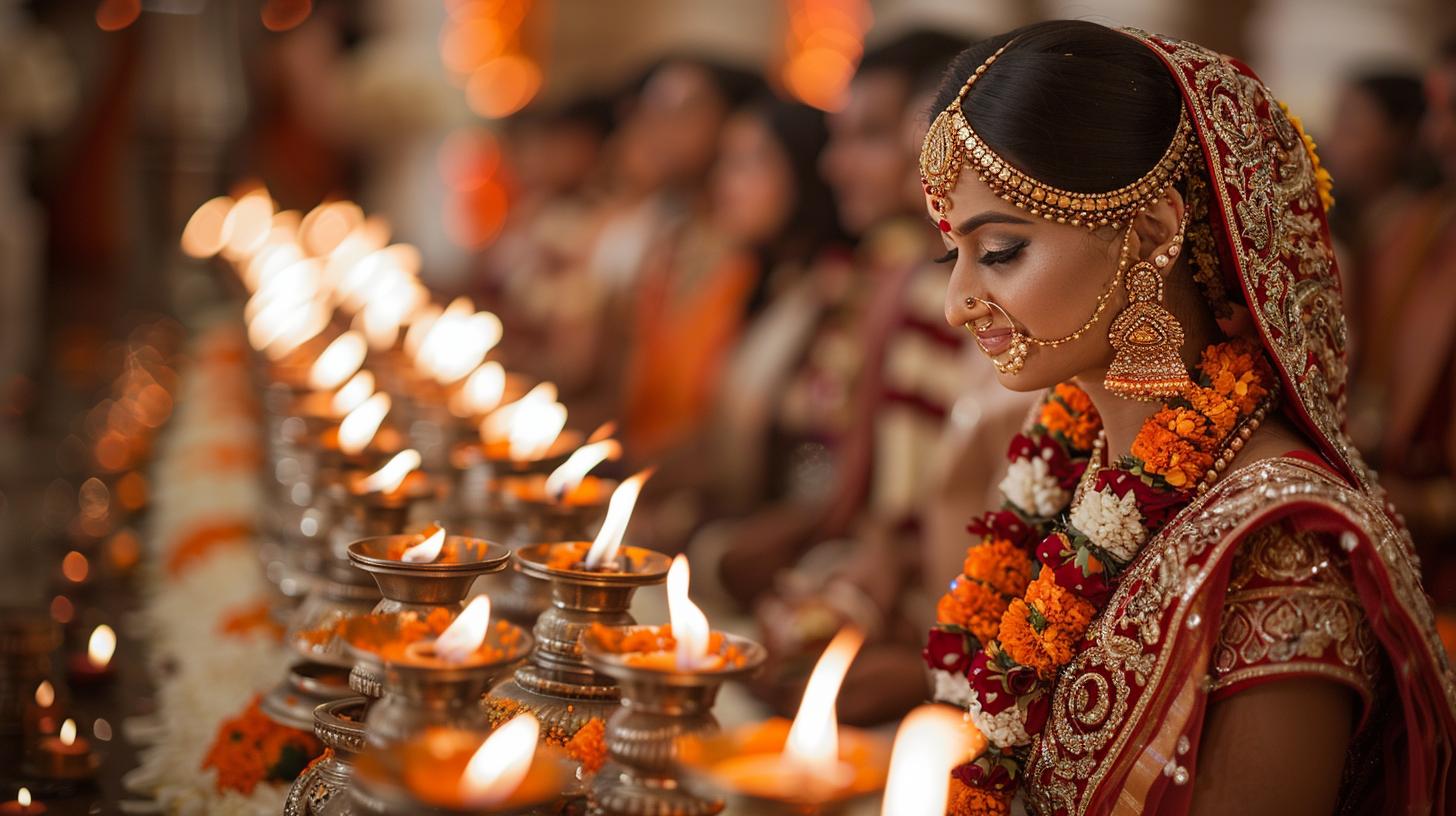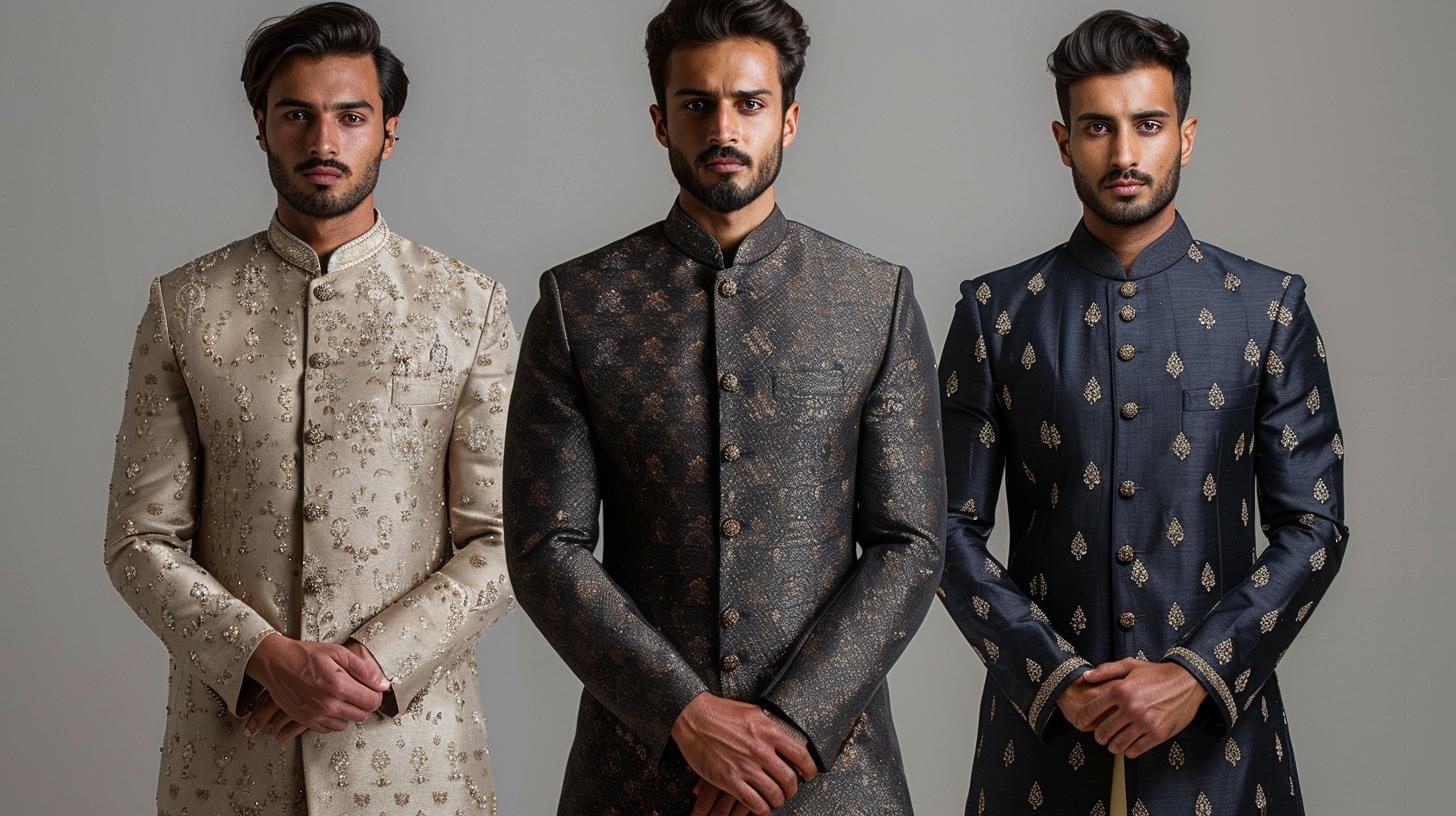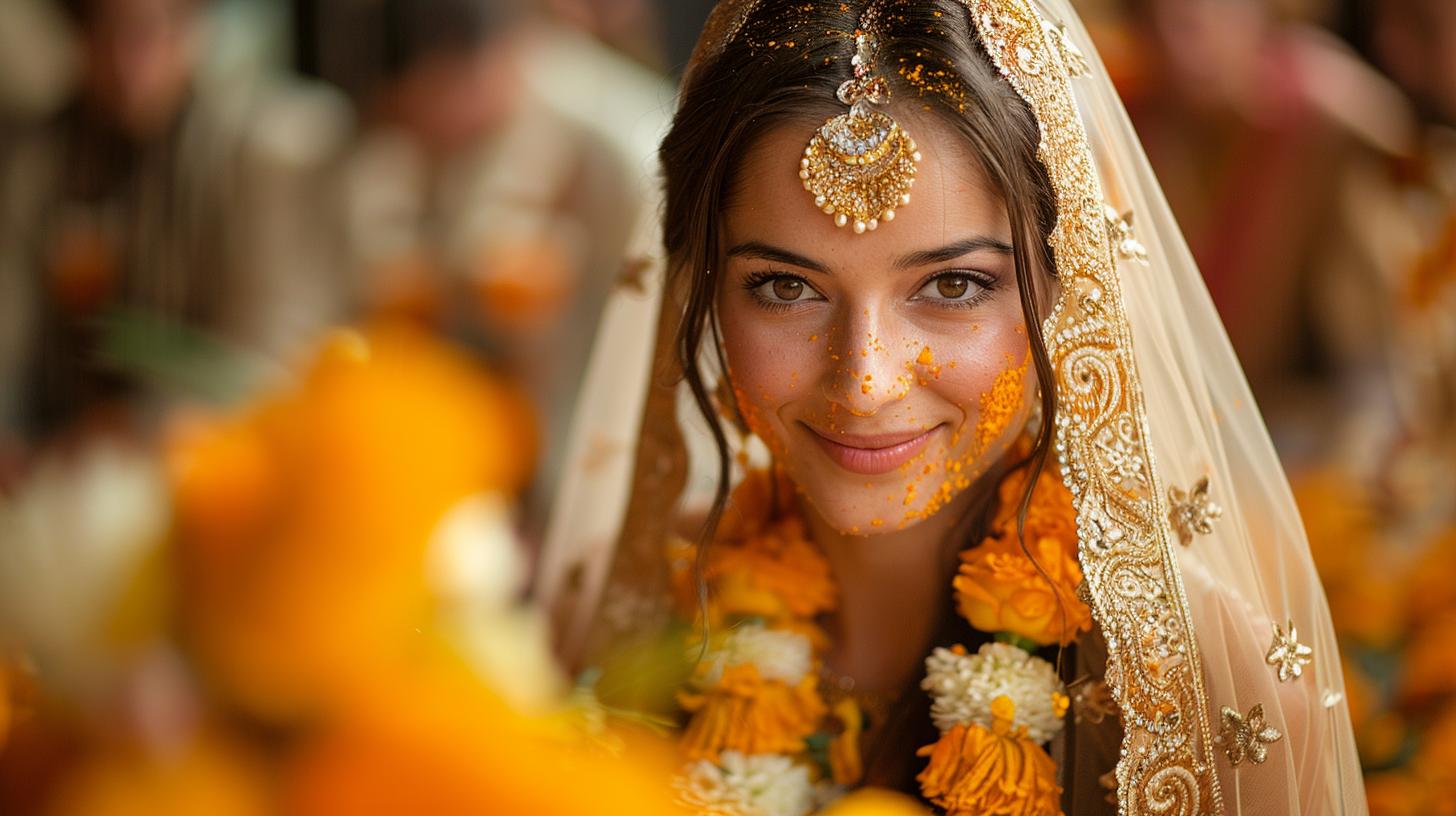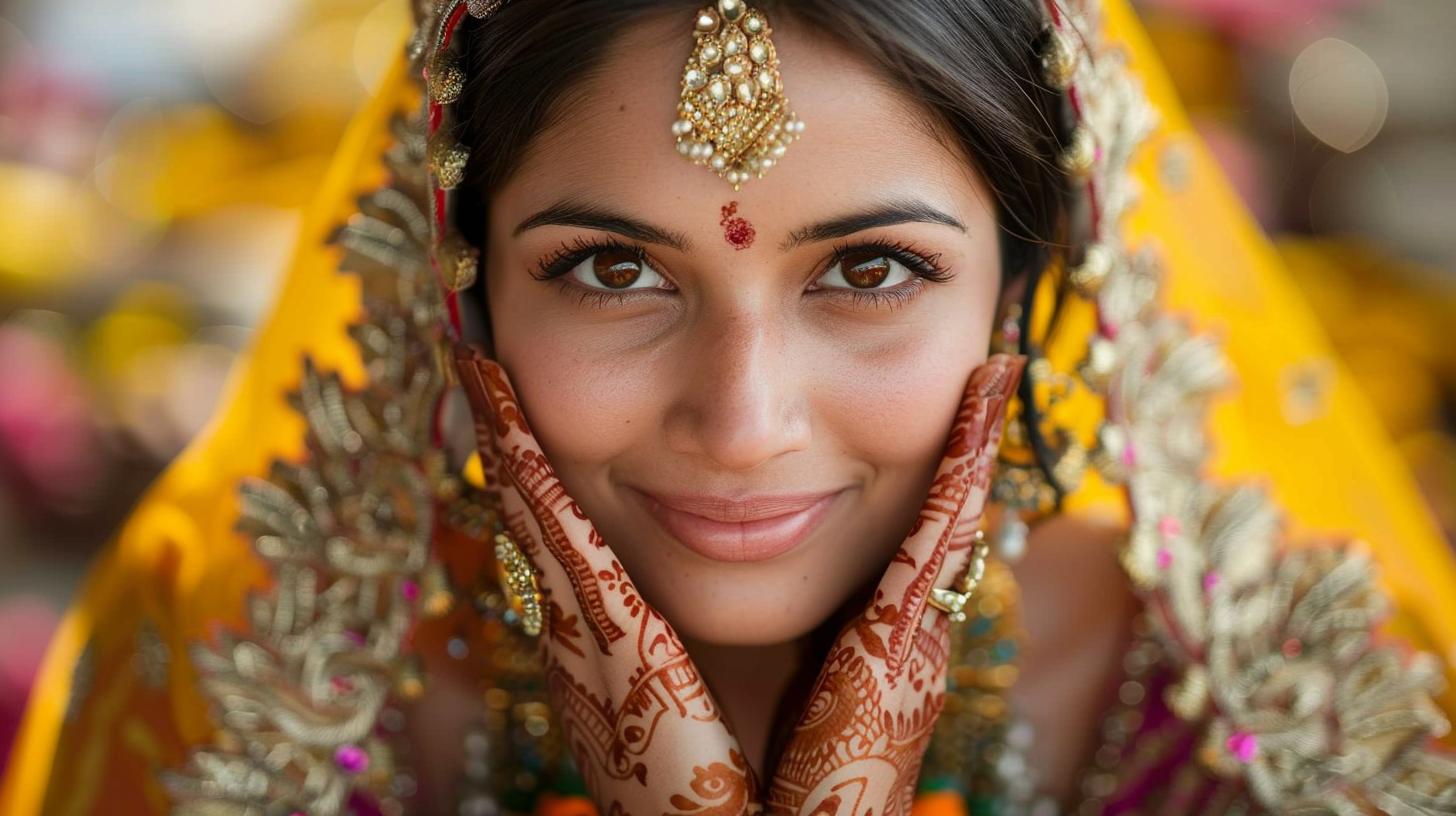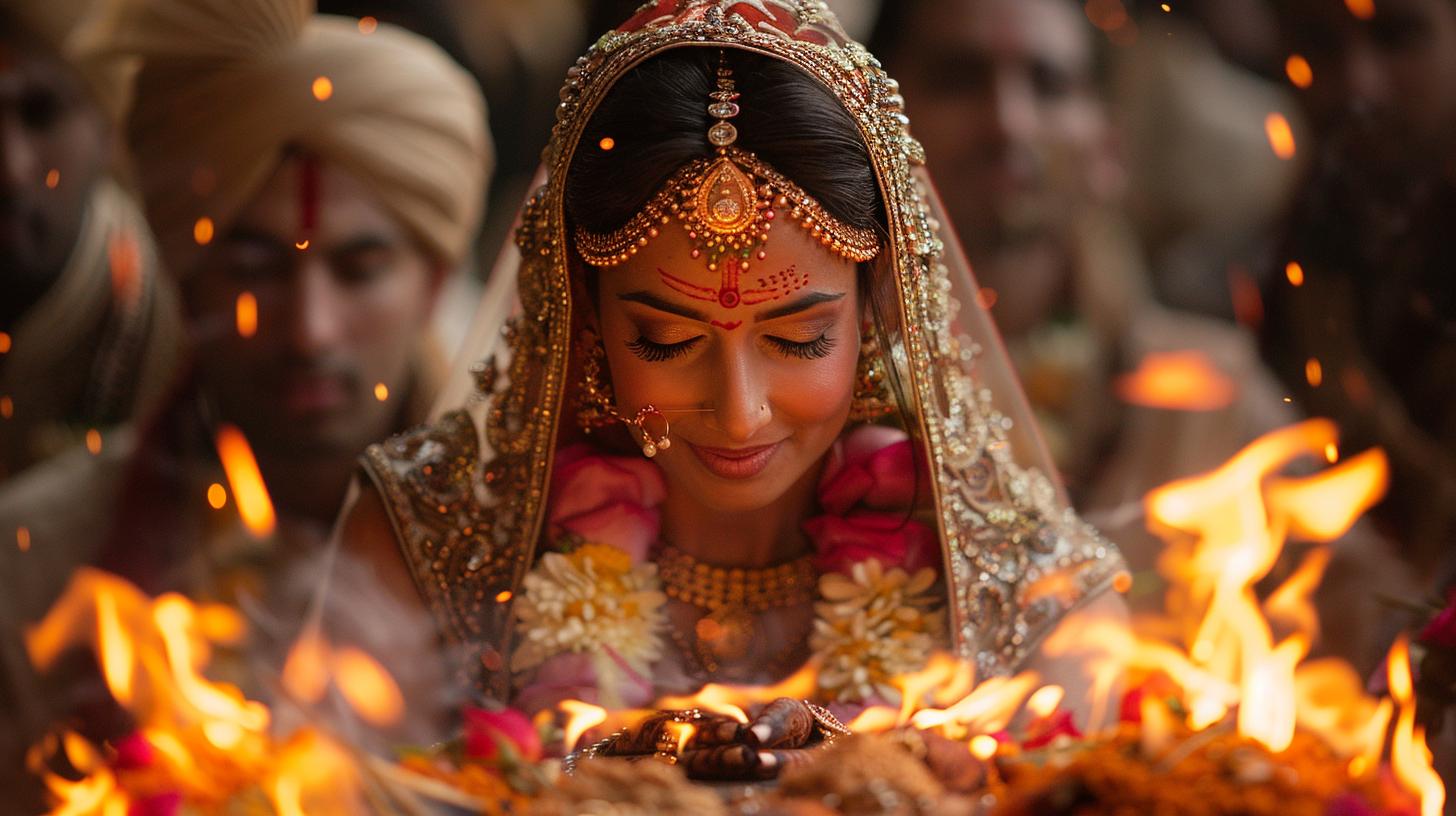Traditional Indian Wedding: A Colorful Celebration of Love and Tradition
Traditional Indian weddings are vibrant celebrations filled with rich cultural traditions and symbolic rituals. From the colorful attire to the elaborate ceremonies, each wedding reflects the diverse and spiritual essence of India.
Guests enjoy traditional cuisine and exchange gifts, while the bride and groom participate in age-old customs that signify their commitment and love. These weddings showcase the beauty and depth of Indian culture, creating unforgettable experiences for all involved.
List of Indian wedding tips and advices
Overview of Traditional Indian Weddings
Traditional Indian weddings are elaborate celebrations steeped in centuries-old customs and traditions that reflect the diverse and spiritual nature of Indian culture. These weddings are not just ceremonies, but grand events that symbolize love, unity, and family.
Meaning and Significance
Indian weddings hold deep cultural and spiritual significance, representing the union of two individuals, families, and communities. Each ritual and tradition during the wedding process symbolizes values such as respect, commitment, and harmony.
Regional Diversity in Indian Weddings
India’s vast and diverse regions bring a unique flair to wedding ceremonies, with different customs and traditions specific to each area. From North to South and East to West, the regional diversity adds richness and variation to Indian weddings.
Traditional Indian Wedding Attire
Traditional Indian wedding attire is steeped in culture and symbolism, reflecting the richness and diversity of India’s heritage. From the exquisite bridal attire to the regal groom’s ensemble, each garment tells a story of tradition and elegance.
Bridal Attire
For the bride, the wedding attire holds deep significance, often symbolizing purity, love, and prosperity. The bridal saree or lehenga is intricately embellished with intricate designs, vibrant colors, and luxurious fabrics, creating a mesmerizing ensemble that captures the essence of beauty and grace.
Groom’s Attire
The groom’s attire for a traditional Indian wedding is just as elaborate and striking as the bride’s. The groom typically adorns a sherwani or kurta, paired with intricately embroidered accessories like a turban and embellished shoes.
Each element of the groom’s attire is carefully chosen to complement the overall aesthetic of the wedding.
Guest Attire for Indian Weddings
Guests attending Indian weddings are expected to dress elegantly and respectfully, adhering to traditional customs and etiquette. Women often opt for colorful sarees or lehengas, while men commonly wear kurta-pajamas or suits in hues that complement the wedding theme.
It is essential for guests to dress modestly and tastefully to honor the significance of the occasion.
Ceremonies and Rituals in Indian Weddings
Pre-Wedding Ceremonies
Indian weddings are steeped in pre-wedding rituals that add anticipation and joy to the celebration. These rituals vary across different regions and communities, but they all serve to prepare the bride and groom for their union.
- Haldi Ceremony: This ceremony involves applying turmeric paste on the bride and groom’s skin to give them a radiant glow for the upcoming wedding.
- Mehndi Ceremony: During this ritual, intricate henna designs are applied to the bride’s hands and feet, symbolizing beauty and auspiciousness.
Wedding Ceremony Traditions
The wedding ceremony is the heart of any Indian wedding, where the bride and groom exchange vows and commit to a lifetime of love and companionship.
This sacred union is witnessed by family and friends, who play important roles in the ceremony.
- Jai Mala: The exchange of garlands between the bride and groom symbolizes their acceptance of each other and their willingness to embark on this journey together.
- Mangal Sutra: The groom ties a sacred thread around the bride’s neck, signifying their eternal bond and commitment.
Symbolic Rituals During the Wedding
Throughout the wedding ceremony, various symbolic rituals take place, each holding deep significance and imparting blessings on the couple.
These rituals bring together the families and instill a sense of tradition and spirituality in the union.
- Saptapadi: The bride and groom take seven steps together, each step symbolizing a vow they make to each other for a happy and prosperous life ahead.
- Blessings from Elders: The couple seeks blessings from their elders, signifying respect for tradition and the wisdom of previous generations.
Food and Gifts at Indian Weddings
Indian weddings are known for their rich and diverse cuisine that reflects the cultural heritage of the region.
The traditional Indian wedding cuisine is a blend of flavors, aromas, and textures that tantalize the taste buds and satisfy the soul.
Traditional Indian Wedding Cuisine
The traditional Indian wedding cuisine includes a variety of dishes that cater to different tastes and preferences. From spicy curries to sweet desserts, each dish is meticulously prepared using fresh ingredients and traditional cooking methods.
- Spicy curries
- Flavorful biryanis
- Crunchy pakoras
- Sweet jalebis
Exchange of Gifts and Significance
The exchange of gifts at Indian weddings symbolizes love, respect, and good wishes for the newlyweds. It is a way for guests to express their happiness and support for the couple as they begin their journey together.
- Traditional gifts such as jewelry and clothing
- Money envelopes for good luck
- Personalized gifts to show thoughtfulness
Planning and Preparation for Indian Weddings
Wedding Planning Process
When it comes to planning a traditional Indian wedding, meticulous attention to detail is key. From setting the date and time of the auspicious event to coordinating various ceremonies and rituals, a well-thought-out plan is essential for a successful celebration.
Tips for a Successful Indian Wedding
- Start planning early to ensure all elements of the wedding come together seamlessly.
- Consult with family members and traditional experts to incorporate cultural customs and rituals.
- Delegate tasks to trusted individuals to alleviate stress and ensure everything runs smoothly on the big day.
- Consider the preferences and needs of both the bride and groom to create a memorable and meaningful wedding experience for all involved.
.

